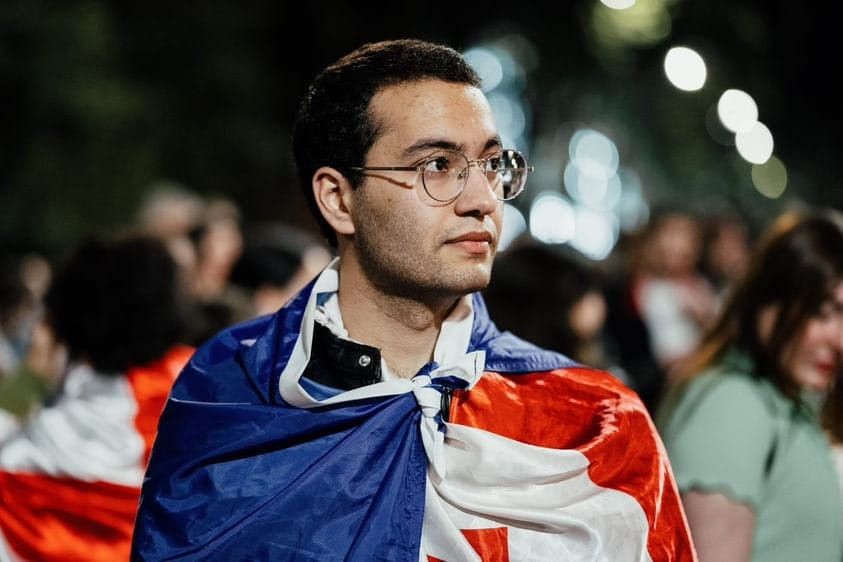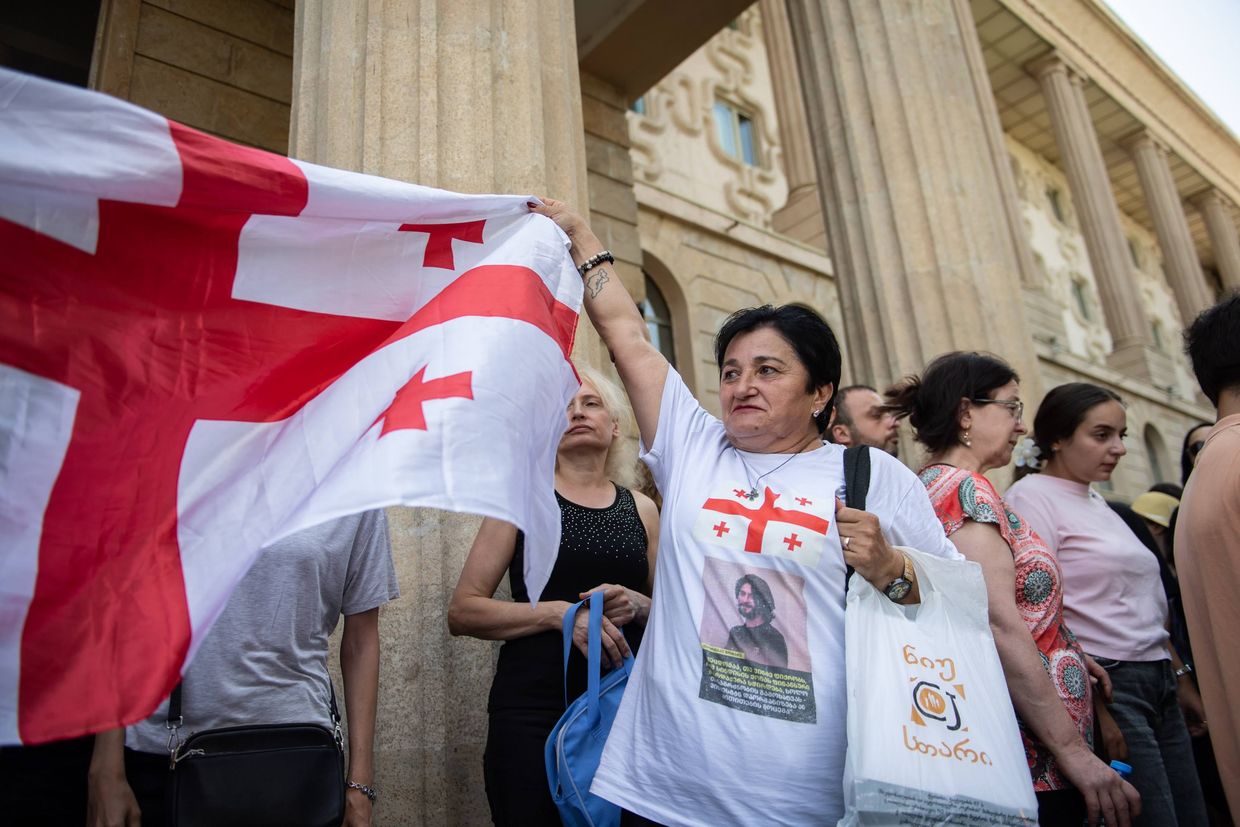
The EU Delegation in Georgia has responded to a letter sent from prison by 20-year-old activist Zviad Tsetskhladze, who was arrested during ongoing anti-government protests. In the letter addressed to Ambassador Paweł Herczyński, he urged the EU not to suspend Georgia’s visa-free regime.
The EU’s response, which was released by the activist Dapioni group founded by Tsetskhladze, is dated 29 September and signed by Zane Rungule, the head of the EU Delegation’s Political Press and Information Section.
The delegation noted that, together with partner embassies, it is monitoring the cases of those detained in connection with the protests. It also quoted EU top diplomat Kaja Kallas, who stated that the EU is deeply concerned about democratic backsliding in Georgia, including the instrumentalisation of the judicial system to repress independent voices.
‘We call on Georgian authorities to release those unjustly detained and to ensure the right to a fair trial, as a fundamental principle of justice and a key pillar of democratic governance’, the letter read.
Responding to Tsetskhladze’s concerns about a possible suspension of the visa-free regime, the letter notes that ‘the compliance with the recommendations of the last visa suspension mechanism report will be assessed in the upcoming European Commission report before the end of the year’.
Georgia gained visa-free travel to the EU in 2017, but growing concerns over restrictive laws, violence against protesters, and general democratic backsliding have raised fears it could be revoked for the whole country.
In July, the EU’s migration commission urged Tbilisi to report on its progress in implementing Brussels’ recommendations to protect fundamental rights and repeal restrictive laws — a report the Georgian Foreign Ministry later said it had submitted.
The EU has since adopted new rules allowing visa-free regimes to be suspended over serious human rights violations. On Monday, Kallas said the upcoming report could give Brussels the option to suspend visa-free travel ‘for some groups’ in Georgia.
Tsetskhladze sent his letter to Herczyński in late August. In the lengthy text, he detailed passages about Georgian and European history, spoke about the country’s aspiration toward European integration, and warned of the threats the current political reality poses to that ideal.
‘When the European idea rests on foundations such as Athenian democracy, Roman law, and the morality of Christ — under which of these principles should we consider turning back on Georgia?’ he wrote.
‘Our present, like our past, resembles David’s battle against Goliath. Dozens of us are sacrificing our personal freedom so that one star — in the blue flag of peace — will shine in the name of our country. But what does this prospect of “isolation” promise us, if not finding ourselves once again behind an Iron Curtain, alone and face-to-face with the evil forces of the North and East?’ he questioned.
Tsetskhladze urged Herczyński to persuade European leaders not to revoke Georgia’s visa liberalisation or expel the country from the Council of Europe.
‘Remind [the leaders] of every young person who greeted the advancing riot squads with the anthem of Europe’, he concluded, referring to the recent pro-European demonstrations in Georgia.
Tsetskhladze is among dozens of protesters who were arrested after 28 November 2024, when continuous anti-government demonstrations began in Tbilisi in response to the ruling Georgian Dream party’s suspension of the country’s EU membership bid.
He was detained in December, and on 2 September 2025, a court sentenced him to two and a half years in prison for the alleged organisation of group actions that violate public order.
Critics have widely described the cases against protesters as fabricated and politically motivated.











